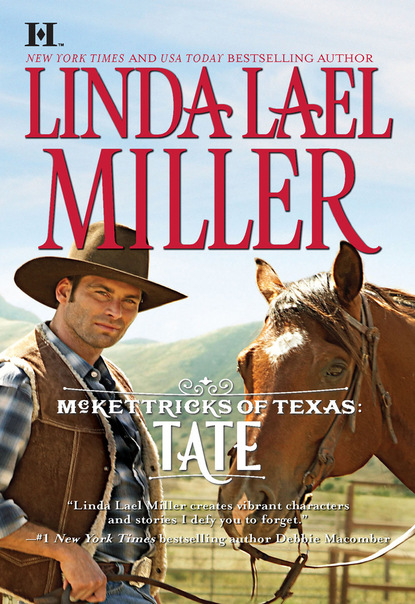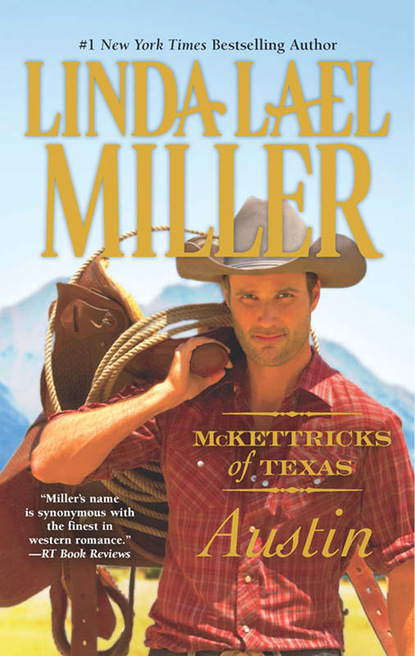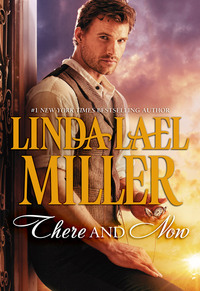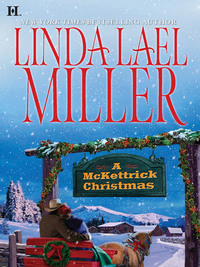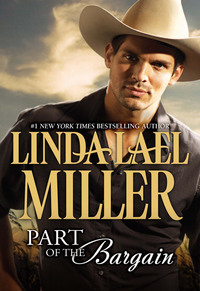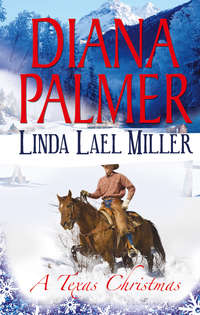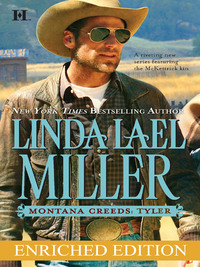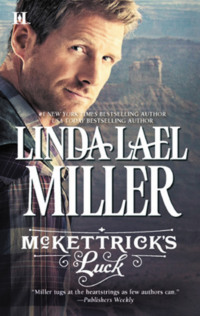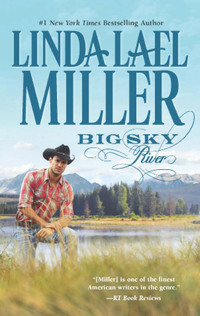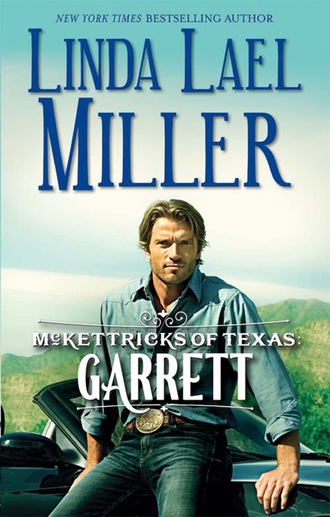
Полная версия
McKettricks of Texas: Garrett
For the millionth time since the accident, a full decade in the past now, Garrett tried to come to terms with the loss of his parents. For the millionth time, it didn’t happen.
What would he have given to have them both waiting at the ranch house, just like in the old days?
Just about anything.
“You fixing to tell me what’s the matter?” Brogan asked, when a long time had passed. “I’m on duty until eight o’clock tomorrow morning, when Deputy Osburt relieves me. I can sit here and wait till hell freezes over and till the cows come home, if that’s what I have to do.”
Garrett assessed the situation. Dawn was hours away. The September darkness was weighted with heat, and with Brogan holding the Porsche’s door open like that, the air-conditioning system was of negligible value. He tightened his fingers around the steering wheel again, hard enough to make his knuckles ache.
“I had a bad day, that’s all,” he said. And a worse night.
Brogan laid a hand on his shoulder. “You headed for the Silver Spur?”
Garrett nodded, swallowed. He could feel the pull of home, deep inside; he was drawn to it.
“I’m going to follow you as far as the main gate,” Brogan said, after more pondering. “Make sure you get home in one piece.”
Garrett looked at him. “Thanks,” he said, without much inflection.
Brogan got out of the Porsche, shut the door, bent to look through the open window again. “Meantime, keep your foot light on the pedal,” he warned. “About the last thing on this earth I want to do right now is roust your big brother from his bed and break the news that you just wrapped yourself around a telephone pole.”
Tate was only a year older than he was, Garrett reflected, and they were about the same height and weight. So why did “big” have to preface “brother”? He was pretty sure nobody referred to him as Austin’s “big brother,” though he had a year on the youngest member of the family, along with a couple of inches and a good twenty pounds.
Garrett waited until Brogan was back in his cruiser before pulling back out onto the highway. The town of Blue River slept just up ahead; the streetlights tripped on, one by one, as he passed beneath them.
At this time of night, even the bars were closed.
As Garrett drove, with his one-man police escort trailing behind him, he thought about Tate, probably spooned up with his pretty fiancée, Libby Remington, in the modest house by the bend in the creek, and felt a brief but bitter stab of envy.
They were happy, those two. So crazy in love that the air around them seemed to buzz with pheromones. Tate and Libby were planning the mother of all weddings for New Year’s Eve, following that up with a honeymoon cruise in the Greek Islands. The sooner they could give Tate’s six-year-old twin daughters, Audrey and Ava, a baby brother or sister, they figured, the better.
Garrett calculated he’d be an uncle again about nine months and five minutes after the wedding ceremony was over.
The thought made him smile, in spite of everything.
The countryside slipped by.
At the main gates opening onto the Silver Spur, Brogan flashed his headlights once, turned the cruiser back toward town and drove off.
Pushing a button on his dashboard, Garrett watched as the tall iron gates, emblazoned with the name McKettrick, swung open to admit him.
Home, he reflected, as he drove through and up the long driveway leading toward the house. The place where they have to take you in.
HOW DID ANYBODY MANAGE to sleep in this huge place? Julie Remington wondered, as she flipped on the lights in the daunting kitchen of the main ranch house on the Silver Spur Ranch. She and her four-going-on-five-year-old son, Calvin, along with their beagle, Harry, had been staying in the first-floor guest suite for nearly a week because there were termites at their rented cottage in town and the whole structure was under a tent.
Taking her private stash of herbal tea bags from a cupboard, along with a mug one of her high school drama students had given her for Christmas the year before, Julie set about brewing herself a cup of chamomile tea.
Coffee would probably have made more sense, she thought, pumping hot water from the special spigot by the largest of several sinks, since it would be morning soon, but she still had hopes of catching a few winks before the day began in earnest.
She had just turned, cup in hand, planning to head back to bed, when the door leading into the garage suddenly opened.
Julie nearly spilled the tea down the front of her ratty purple quilted bathrobe, she was so startled.
Garrett McKettrick paused just over the threshold, and she knew by the pensive look in his eyes that he was wondering what she was doing in his kitchen.
She was unprepared for the grin breaking over his handsome face, dispelling the strain she’d glimpsed there only a moment before.
“Hey,” he said, shutting the door behind him, tossing a set of keys onto a granite countertop.
“Hey,” Julie said back, wondering if he’d remembered her yet. She crossed the room, put out her free hand for him to shake. “Julie Remington,” she reminded him.
He laughed. “I know who you are,” he replied. “We grew up together, remember? Not to mention a more recent encounter at Pablo Ruiz’s funeral.”
A trained actress, Julie was playing the part of a woman who didn’t feel self-conscious standing in someone else’s kitchen in the middle of the night, drinking tea and wearing an old bathrobe. Or trying to play the part, anyhow.
It was proving difficult to carry off. Especially after she blew her next line. “I just thought—with all the people you must know—”
All the women you must know …
Garrett’s eyes were that legendary shade of McKettrick blue, a combination of summer sky, new denim and cornflower, and solemn as they regarded her.
Julie’s heart took up a thrumming rhythm. “I suppose you’re wondering what I’m doing here,” she prattled on.
What was wrong with her? It wasn’t as if she’d been caught breaking and entering, after all. Tate had practically insisted that she and Calvin move into the mansion, instead of taking a motel room or making some other arrangement, while the cottage was being pumped full of noxious chemicals.
One corner of Garrett’s mouth tilted up in a grin, and he walked over to the first of a row of built-in refrigerators, pulled open the door and assessed the contents.
“Actually,” he said, without turning around, “I wasn’t wondering that at all.”
Julie, who was not easily rattled, blushed. “Oh.”
He plundered the refrigerator for a while.
“Well,” Julie said, too brightly, “good night, then.”
Holding a storage container full of Julie’s special chicken lasagna, left over from supper, Garrett faced her, shouldering the refrigerator door shut in the same motion. “Or good morning,” he said, “depending on your viewpoint.”
“It’s barely four,” Julie remarked.
Garrett stuck the container into the microwave, pushed a few buttons.
“Don’t!” Julie cried, rushing past him to rescue the dish. “This kind of plastic melts if you nuke it—”
He arched an eyebrow. “I’ll be damned,” he said. Then, while Julie busied herself transferring the contents of the container onto a microwave-safe plate, he added, “Are your eyes really lavender, or am I seeing things?”
The question flustered Julie. “It’s the bathrobe,” she said, as the microwave whirred away, heating up the lasagna.
“The bathrobe?” Garrett asked, sounding confused. He was standing in Julie’s space; she knew that even though she couldn’t bring herself to look directly at him again, which was stupid, because just as he’d said, Blue River was home to both of them. They’d gone to the same schools and the same church growing up. And with their siblings engaged, they were practically family.
Julie, who never blushed, blushed again, and so hard that her cheeks burned. She was really losing it, she decided.
“My—my eyes are actually hazel,” she said, “and they take on the color of whatever I’m wearing. And since the bathrobe is purple—”
As soon as the words were out of her mouth, Julie bit down on her lower lip. Why couldn’t she just shut up?
Mercifully, Garrett didn’t comment. He just stood there at the counter, waiting for the microwave to finish warming up the leftover lasagna.
“Mom?” Calvin padded into the kitchen, blinking owlishly behind the lenses of his glasses. He wore cotton pajamas and his feet were bare. “Is it time to get up? It’s still dark outside, isn’t it?”
Julie felt the usual rush of motherly love, and an undercurrent of fear as well. Recently, Calvin’s biological father had been making overtures about “reconnecting” with their son and, although he’d paid child support all along, Gordon Pruett was a total stranger to the boy.
“Go back to bed, sweetheart,” she said gently. “You don’t have to get up yet.”
The dog, Harry, appeared at Calvin’s side. The adopted beagle was surprisingly nimble, although he’d been born one leg short of the requisite four.
Calvin’s attention shifted to Garrett, who was just sitting down at the table, the plate of lasagna in front of him.
“Hello,” Calvin said.
Harry began to wag his tail, though Julie figured the dog was at least as interested in the Italian casserole as he was in Garrett, if not more so.
“Hey,” Garrett responded.
“You’re Audrey and Ava’s uncle, aren’t you?” Calvin asked. “The one who gave them a real castle for their birthday?”
Garrett chuckled. Jabbed a fork into the food. “Yep, that’s me.”
“It’s at the community center now,” Calvin said, drawing a little closer, not to his mother, but to Garrett. “The castle, I mean.”
“Probably a good place for it,” Garrett said. “You want some of this pasta stuff? It’s pretty good.”
Unaccountably, Julie bristled. Pasta stuff? Pretty good? It was an original recipe, and she’d won a prize for it at the state fair the year before.
Calvin reached the table, hauled back a chair and scrambled into it. With a jab of his right index finger, he pushed his glasses back up his nose. His blond hair stuck out in myriad directions, and his expression was so earnest as he studied Garrett that Julie’s heart ached a little. “No, thanks,” the little boy said solemnly. “We had it for supper and, anyway, Mom makes it all the time.”
Garrett looked up at Julie, smiled slightly and turned his full attention back to Calvin. “Your mom’s a good cook,” he said.
Harry advanced and brushed up against Garrett, leaving white beagle hairs all over the leg of his jeans. Garrett chuckled and greeted Harry with a pat on the head and a quiet “Hey, dog.”
“Calvin,” Julie interceded, “we should get back to bed and leave Mr. McKettrick to enjoy his … breakfast.”
Garrett’s eyes, though weary, seemed to dance when he looked up at Julie. “‘Mr. McKettrick’?” he echoed. His gaze swung back to Calvin. “Do you call my brother Tate ‘Mr. McKettrick’?” he asked.
Calvin shook his head. “I call him Tate. He’s going to marry my aunt Libby on New Year’s Eve, and he’ll be my uncle after that.”
A nod from Garrett. “I guess he will. I will be, too, sort of. So maybe you ought to call me Garrett.”
The child beamed. “I’m Calvin,” he said, “and this is my dog, Harry.”
And he put out his little hand, much as Julie had done earlier.
They shook on the introduction, man and boy.
“Mighty glad to meet the both of you,” Garrett said.
CHAPTER TWO
THE COMBINATION OF A FIERCELY BLUE autumn sky, oak leaves turning to bright yellow in the trees edging the sundappled creek and the heart-piercing love she felt for her little boy made Julie ache over the bittersweet perfection of the present moment.
She turned the pink Cadillac onto the winding dirt road leading to the old Ruiz house, where Tate and Libby and Tate’s twin daughters were living, and glanced into the rearview mirror.
Calvin sat stoically in his car seat in back, staring out the window.
Since Julie had to be at work at Blue River High School a full hour before Calvin’s kindergarten class began, she’d been dropping him off at Libby’s on her way to town over the week they’d been staying on the Silver Spur. He adored his aunt, and Tate, and Tate’s girls, Audrey and Ava, who were two years older than Calvin and thus, in his opinion, sophisticated women of the world. Today, though, he was just too quiet.
“Everything okay, buddy?” Julie asked, tooting the Caddie’s horn in greeting as her sister Libby appeared on the front porch of the house she and Tate were renovating and started down the steps.
“I guess we’ll have to move back to town when the bugs are gone from our cottage and they take down the tent,” he said. “We won’t get to live in the country anymore.”
“That was always the plan,” Julie reminded her son gently. “That we’d go back to the cottage when it’s safe.” Recently, she’d considered offering to buy the small but charming house she’d been renting from month to month since Calvin was a baby and making it their permanent home. Thanks to a windfall, she had the means, but this morning the idea lacked its usual appeal.
Calvin suffered from intermittent asthma attacks, though he hadn’t had an incident for a long time. Suppose some vestige of the toxins used to eliminate termites lingered after the tenting process was finished, and damaged his health—or her own—in some insidious way?
While Julie was trying to shake off that semiparanoid idea, Libby started across the grassy lawn toward the car, grinning and waving one hand in welcome. She wore jeans and a navy blue sweatshirt and white sneakers, and she’d clipped her shiny light-brown hair up on top of her head.
A year older than Julie, Libby had always been strikingly pretty, but since she and Tate McKettrick, her onetime high school sweetheart, had rediscovered each other just that summer, she’d been downright beautiful. Libby glowed, incandescent with love and from being thoroughly loved in return.
Julie pushed the button to lower the back window on the other side of the car, smiling with genuine affection for her sister even as she felt a brief but poignant stab of stark jealousy.
What would it be like to be loved—no, cherished—by a full-grown, committed man like Tate? It was an experience Julie had long-since given up on, for herself, anyway. She was independent and capable, and of course she had no desire to be otherwise, but it would have been nice, once in a while, not to have to be strong every minute of every day and night, not to blaze all the trails and fight all the dragons.
Libby gave Julie a glance before she leaned through the back window to plant a smacking welcome kiss on Calvin’s forehead.
“‘Good morning, Aunt Libby,’” she coached cheerfully, when Calvin didn’t speak to her to right away.
“Good morning, Aunt Libby,” Calvin repeated, with a reluctant giggle.
“He’s a little moody this morning,” Julie said.
“I’m not moody,” Calvin argued, climbing out of the car to stand beside Libby on the gravel driveway, then reaching inside for his backpack. “I just want to live on a ranch, that’s all. I want to have my very own horse, like Audrey and Ava do. Is that too much to ask?”
Julie sighed. “Well, yeah, Calvin, it kind of is too much to ask.”
Calvin didn’t say anything more; he merely shook his head and, lugging his backpack, headed off toward the house, his small shoulders stooped.
“What was that all about?” Libby asked, moving around to Julie’s side of the car and bending to look in at her.
Julie genuinely didn’t have time for a long discussion, but she had always confided in Libby, and now it was virtually automatic, especially when she was upset.
“Maybe I shouldn’t have let you and Tate talk me into staying on the Silver Spur,” she fretted. “It’s only been a week, but Calvin’s already too used to living like a McKettrick—riding horses, swimming in that indoor pool, watching movies in a media room, for heaven’s sake. I can’t give him that kind of life, Libby. I’m not even sure I’d want to if I could. What if he’s getting spoiled?”
Libby raised an eyebrow. “Take a breath, Jules,” she said. “You’re dramatizing a little, don’t you think? Calvin is a good kid, and it would take a lot more than a week or two of high living at the ranch to spoil him. Both of you are under extra stress—Calvin just started kindergarten, and you’re back to teaching full-time, with your house under a tent because of termites—and then there’s the whole Gordon thing….” Libby stopped talking, reached through the window to squeeze Julie’s shoulder. “The point is—things will even out pretty soon. Just give it time.”
Julie worked up a smile, tapped at the face of her watch with one index finger. Easy for you to say, she thought, but what she said out loud was, “Gotta go.”
Libby nodded and stepped away from the car, raised a hand in farewell. She seemed reluctant to let Julie go, and a worried expression flickered in her blue eyes as she watched her back up, turn around and drive off.
Libby had done her little-girl best to stand in after their mother had abandoned the family years before. She’d given up finishing college and arguably a lot more besides when their dad, Will Remington, was diagnosed with pancreatic cancer. Libby had moved back to Blue River, started the Perk Up Coffee Shop—now reduced to a vacant lot across the alley from the house they’d all grown up in—and looked after their father as his illness progressed.
Of course, Julie had helped with his care as much as possible and so had Paige, but just the same, most of the hard stuff had fallen to Libby. Sure, she was the eldest, but the age difference was minor—they’d been born one right after the other, three children in three years. The truth was, Libby had been willing to make sacrifices Julie and Paige couldn’t have managed at the time.
Julie bit down on her lower lip as the town limits came into view, and she began reducing her speed. Their mother, Marva, had reappeared in Blue River months ago, moved into an apartment, and tried, in her own way, to establish some kind of relationship with her daughters. The results had been less than fabulous.
At first, Libby, Julie and Paige had resisted the woman’s every overture, but even after deserting them when they were small, breaking their hearts and their father’s as well, Marva was blithely convinced that a fresh start was just a matter of letting bygones be bygones.
In time, Julie and Paige had both warmed up to Marva somewhat, Libby less so.
The Cadillac bumped over potholes in the gravel parking lot behind Blue River High. The long, low-slung stucco building had grown up on the site of an old Spanish mission, though only a small part of the original structure remained, serving as a center courtyard. Classrooms, a small cafeteria and a gymnasium had been added over the decades, and during an oil boom in the mid-1930s, Clay McKettrick II, known as JR in that time-honored Southern way of denoting “juniors,” had financed the construction of the auditorium, with its two hundred plush theater seats, fine stage and rococo molding around the painted ceiling.
Erected on school property, the auditorium belonged to the entire community. Various civic organizations held their meetings and other events there, and several different denominations had used it as a church on Sunday mornings, while their own buildings were under construction or being renovated.
The auditorium, cool and shadowy and smelling faintly of mildew, had always been a place of almost magical solace for Julie, especially in high school, when she’d had leading roles in so many plays.
Although she’d performed with several professional road companies later on, Julie had never wanted to be an actress and live in glamorous places like New York or Los Angeles. All along, she’d planned on—and worked at—getting her teaching certificate, returning to Blue River and keeping the theater going.
There was no room in the budget for a drama department—the high school theater group supported itself by putting on two productions a year, one of them a musical, and charging modest admission. Like her now-retired predecessor, Miss Idetta Scrobbins, Julie earned her paycheck by teaching English classes—the drama club and the plays they put on were a labor of love.
Julie was thinking about the next project—three one-act plays written by some of her best students—as she hurried down the center aisle and through the doorway to the left of the stage, where she’d transformed an unused supply closet into a sort of hideaway. Officially, her office was her classroom, but it was here that she met with students and came up with some of her best ideas.
Hastily, she tossed her brown-bag lunch into the small refrigerator sitting on top of a file cabinet, kicked off her flat shoes and pulled on the low-heeled pumps she kept stashed in a desk drawer. She flipped on her computer—it was old and took forever to boot up—locked up her purse and raced out of the hideout, back up the aisle and out into the September sunshine.
She was five minutes late for the staff meeting, and Principal Dulles would not be pleased.
Everyone else was already there when Julie dashed into the school library and dropped into a utilitarian folding chair at one of the three long tables where students read and did homework. The library doubled as a study hall throughout the school day.
Up front, the red-faced principal puffed out his cheeks, turning a stub of chalk end over end in one hand, and cleared his throat. Julie’s best friend at work, Helen Marcus, gave her a light poke with her elbow and whispered, “Don’t worry, you didn’t miss anything.”
Julie smiled at that, looked around at the half-dozen other teachers who were her colleagues. She knew that Dulles, a middle-aged man from far away, made no secret of his opinion that Blue River, Texas, hardly offered more in the way of cultural stimulation than a prairie-dog town would have. He considered her a flake because of her colorful clothing and her penchant for putting on and directing plays.
For all of that, Arthur was a good person.
Like Julie, most of the other members of the staff had been born and raised there. They’d come home to teach after college because they knew Blue River needed them; high pay and job perks weren’t a factor, of course. To them, odd breed that they were, the community’s kids mattered most.
Dulles cleared his throat, glaring at Julie, who smiled placidly back at him.
“As some of you already know,” he began, “the McKettrick Foundation has generously agreed to match whatever funds we can raise on our own to buy new computers and special software for our library. Our share, however, amounts to a considerable sum.”
The McKettricks were community-minded; they’d always been quick to lend a hand wherever one was needed, but the foundation’s longstanding policy, except in emergencies, was to involve the whole town in raising funds as well. At the name McKettrick, Julie felt an odd quickening of some kind, at once disturbing and delicious, thinking back to her encounter with Garrett in the ranch-house kitchen.
The others shifted in their seats, checked their watches and glanced up at the wall clock. Students were beginning to arrive; the ringing slam of locker doors and the lilting hum of their conversation sounded from the wide hallway just outside the library.
Julie waited attentively, sensing that Arthur’s speech was mainly directed at her, but unable to imagine why that should be so.
No one spoke.
Arthur seemed reluctant, but he finally went on. He looked straight at Julie, confirming her suspicions. “It’s a pity the drama club is staging those three one-act plays for the fall production, instead of doing a musical.”


